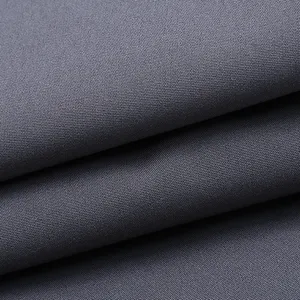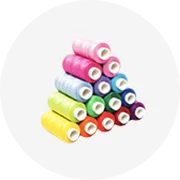

High Quality Recycled 100% Polyester Lining Fabric Soft Downproof Woven Microfiber Taffeta Fabric For Blazer And Coat


75D 100%polyester Peach Skin Waterproof Fabric Laminated TPU+Knitted Fabric For Beach Pants/Hat/short



















The 50d polyester fabric stands as a testament to the versatility and adaptability of synthetic textiles. This category of fabric is characterized by its denier count, which measures the thickness of the individual threads used in the construction of the material. A 50 denier count indicates a fine, lightweight fabric, making it a preferred choice for a variety of applications.
The 50d polyester is known for its strength and durability, despite its relatively light weight. This fabric maintains its shape and resists shrinking and wrinkles, which is essential for end products that demand longevity and ease of care. Additionally, its moisture-resistant properties make it suitable for outdoor and active wear, as it efficiently wicks away moisture from the body.
Versatility is a hallmark of polyester 50d, with its uses extending across various industries. From clothing and bedding to upholstery, this fabric's adaptability makes it a popular choice for manufacturers. Its lightweight nature is particularly beneficial in the production of linings and delicate apparel, offering a comfortable wearability that is often sought after in the textile market.
The 50d polyester fabric category encompasses a range of types, each with distinct features. For instance, some variants of this fabric offer enhanced UV resistance, making them ideal for outdoor applications. Others are treated to enhance their resistance to fire, water, or stains, broadening their usability in more demanding environments.
In the realm of synthetic fabrics, 50d polyester is a standout for its use of high-quality yarns that contribute to its overall performance. The fabric's construction often involves recycled materials, such as PET plastic bottles, which are transformed into fibers that are then spun into yarn. This not only gives the fabric its strength and durability but also aligns with environmentally conscious manufacturing practices.
Sustainability is increasingly important in textile production, and 50d polyester fabric is no exception. The process of creating recycled polyester fabric from post-consumer plastics illustrates the industry's commitment to reducing waste and conserving resources. This approach not only benefits the environment but also provides a fabric that meets the rigorous demands of various applications without compromising on performance.